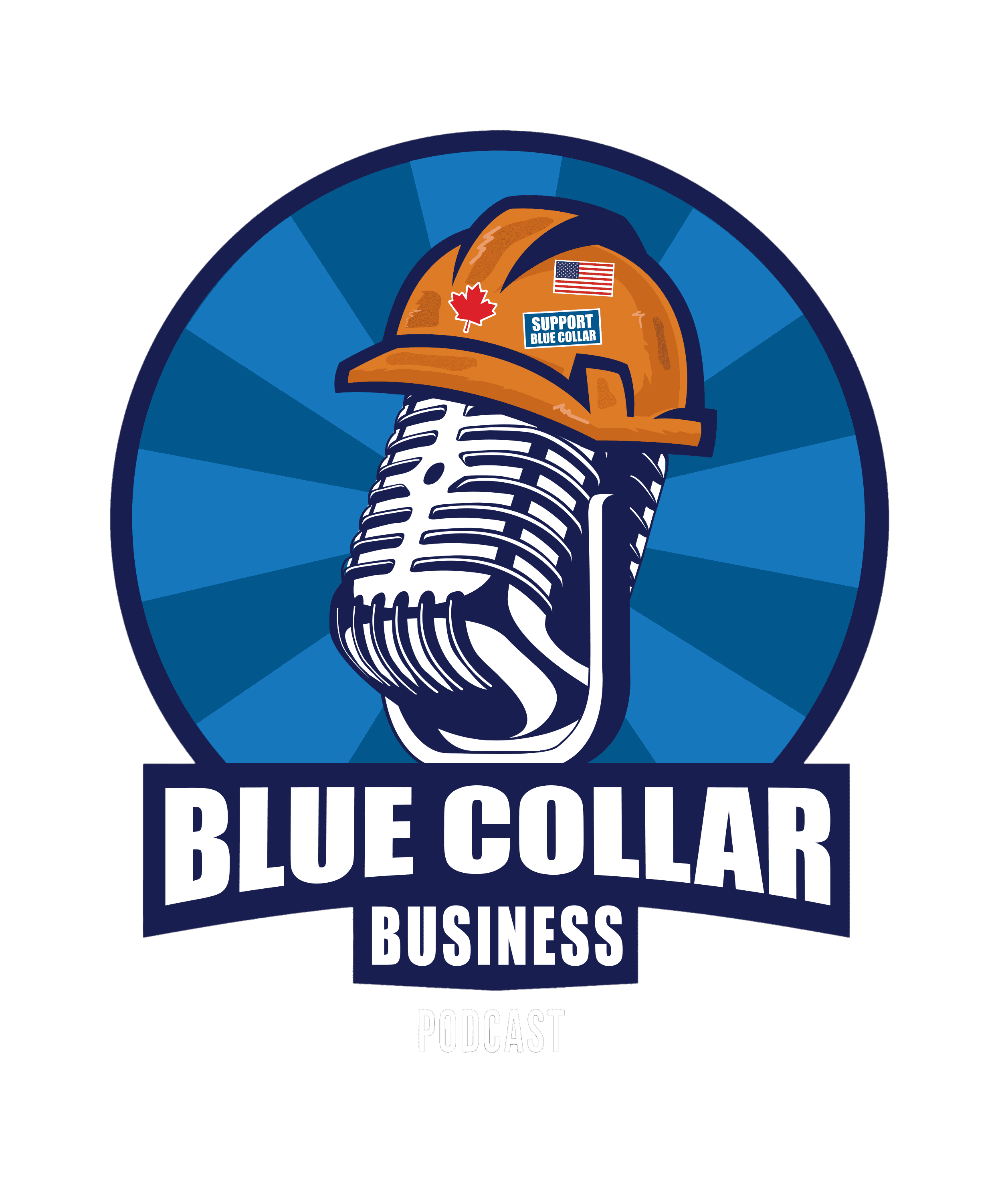The world of government contracting remains largely hidden from most blue collar businesses, yet it represents billions in untapped opportunities waiting to be claimed. In this eye-opening conversation with Melinda Colon of Fortis OBM, we discover how tradespeople and contractors can access this lucrative market with less paperwork than buying a house.
Melinda brings her 20+ years of expertise in securing over $4.4 billion in government contracts to break down what feels complicated into actionable steps. She walks us through her five-step GovCon Sales Strategy that transforms intimidating bidding processes into straightforward pathways to stable, recurring revenue. One of her clients, a $10 million business, won a $7.5 million contract on their very first proposal submission.
What makes government contracting particularly valuable for blue collar businesses is the stability it provides. While private sector work might offer higher profit margins, government contracts deliver predictable payment schedules that can eliminate cash flow worries. As Melinda explains, "Use government contracting to stabilize your business so you can deal with the volatility of having a business in the private sector."
The most powerful revelation might be about contract accessibility. Contracts exist at every level—local, state, and federal—covering virtually everything blue collar professionals do. From roads and bridges to city infrastructure, if you see it being built or maintained, there's likely a government contract behind it. Even more intriguing are the "hidden" opportunities: contracts that never get advertised or remain unclaimed simply because contractors don't know to look for them.
Whether you're a minority-owned business looking to leverage set-aside contracts or a contractor seeking to diversify revenue streams, this episode provides the roadmap to transform your business through government contracting. Stop leaving your tax dollars on the table and learn how to claim what's already waiting for you.
Ready to explore government contracting for your business? Visit govconmillions.com to learn the system and start winning contracts that could fundamentally change your business trajectory.
Follow and stay connected:
Never miss an update—follow, subscribe, and join the conversation!
More About this Episode
How Government Contracts Can Transform Your Blue-Collar Business
In the world of blue-collar business, there's one reality we all know too well: work comes and goes. One month you're slammed with projects, the next you're scrambling to fill the schedule. But what if I told you there's a way to stabilize your revenue, plan for the future, and scale with confidence? Enter government contracting.
If you're a contractor, tradesman, or business owner who's ever considered working with the government but felt intimidated by the process, you're not alone. There's a lot of mystery around how government contracts work, and most of the people who are winning these contracts aren’t exactly handing out playbooks.
But today, we’re changing that. I had the pleasure of sitting down with Melinda Colon, a government contracting expert and the founder of Fortis OBM, who has helped businesses land over $4.4 billion in government contracts. Whether you're in excavation, utilities, construction, or any other trade, government contracts could be your ticket to financial stability and long-term business success.
The Hidden Goldmine of Government Contracts
Melinda put it best:
"Government contracting is like a speakeasy on a Saturday night. If you don’t know where to look, you won’t find it. But once you do, you’ll wonder how you ever missed it."
Most small business owners don’t realize just how many contracts are available. And the best part? The money is already set aside. These are your tax dollars coming back into the economy through funded projects.
From paving roads to installing utilities, maintaining public buildings, and disaster relief, every service that keeps a city or state running needs contractors. And these projects aren’t just one-off jobs—they’re long-term, multi-year contracts that provide stability and predictable income.
So, why aren’t more contractors jumping into this opportunity?
The Biggest Myths About Government Contracting
Before we dig into the how, let’s clear up some common misconceptions:
1. "Government contracts are too complicated."
Sure, government contracts have regulations, but so do private contracts. Once you learn the system, it’s no harder than bidding commercial work.
2. "You need government experience to win contracts."
False. Your experience in the private sector counts. The government just wants to see that you can do the job and complete the scope of work.
3. "Only big companies win government contracts."
Not true. In fact, there are set-asides specifically for small businesses, minority-owned businesses, and veteran-owned businesses. These contracts are designed to help smaller companies compete against the big guys.
4. "It takes forever to get paid."
Actually, the government is one of the most reliable payers. While some contracts may have 30-60 day payment terms, others pay weekly or monthly on a recurring basis.
How to Get Started with Government Contracts
Melinda broke down her five-step system for winning government contracts, and let me tell you—it’s the blueprint every contractor needs.
1. Prepare
Before you dive in, you need to define your goals. How much work do you want? Which contracts make sense for your business? Planning ahead keeps you from feeling overwhelmed and chasing the wrong opportunities.
2. Target
Not all government agencies need the same services. Find out who is buying what you sell. Whether it's local, state, or federal agencies, you need to know where the demand is and who the decision-makers are.
3. Strategize
Government contracting isn’t just about submitting bids—it’s about relationships. Get to know procurement officers, attend government meetings, and position your business as a trusted resource before a contract even goes out for bid.
4. Submit
When it’s time to bid, make sure your proposal tells a story. Pricing isn’t just about being the lowest bidder—it’s about proving your value. And if you don’t win, always request a debrief to learn how you can improve.
5. Track
Winning a contract is just the beginning. You need to track results, build on success, and stack contracts to create a pipeline of steady work.
What Types of Contracts Can You Win?
There are three levels of government contracts:
- Local – Think city and county projects like road repair, drainage, and public utilities.
- State – Larger projects, including highways, water management, and schools.
- Federal – Nationwide projects that include military bases, infrastructure, and disaster recovery.
Each level offers different opportunities, and you don’t have to start at the top. Many contractors start with small, local contracts and work their way up.
The Key to Scaling: Government Contracts as a Stability Tool
One of the biggest takeaways from my conversation with Melinda was how government contracts can stabilize your business.
"Use government contracts to cover your overhead, payroll, and operating costs. Then, you can take risks in the private sector without worrying about cash flow issues."
How many contractors have been burned by slow-paying clients? By landing a steady government contract, you create a baseline of recurring revenue so that when private jobs take longer to pay, your business isn’t scrambling to make payroll.
How to Price Government Contracts
If you're used to private-sector bidding, you might be wondering how government pricing works. Here's the key difference:
- In private contracts, you might shoot for higher margins, knowing you’ll have some negotiation room.
- In government contracts, pricing needs to be competitive but sustainable. Too low and they won’t trust you. Too high and you’ll price yourself out.
The goal is to find the balance—competitive pricing with enough margin to make it worth your while.
Exclusive Tips from Melinda
Before we wrapped up our conversation, Melinda dropped some insider strategies that most contractors never hear about:
1. Listen to Government Meetings
Most cities and counties record their meetings, where they discuss upcoming projects. If you want to be ahead of the competition, start tuning in.
2. Use Future-Tense Language in Bids
When submitting a bid, write in the future tense:
- "We will complete this project on time."
- "We will work alongside the department to ensure a seamless build."
This small shift creates momentum and confidence in the minds of decision-makers.
3. Follow the Money Flow
When government officials make public statements about problems (like aging infrastructure or disaster relief), contracts are coming. Get in front of these agencies before the bids go public.
This Money Is Already Yours—Go Get It
At the end of the day, government contracts aren’t just for the "big guys." The system is set up to help small businesses win—but only if you take action.
I’ll be the first to admit—I wish I had this information years ago. If you’re a contractor looking to stabilize and scale, don’t let this opportunity pass you by.
Want to dive deeper? Visit GovConMillions.com to get started.
And if you found this episode valuable, share it with a fellow tradesman who could use a game-changer in their business.
Until next time, stay safe, stay smart, and go claim what’s yours.



Member discussion: